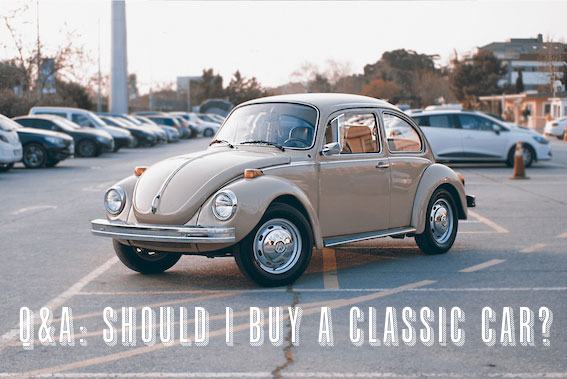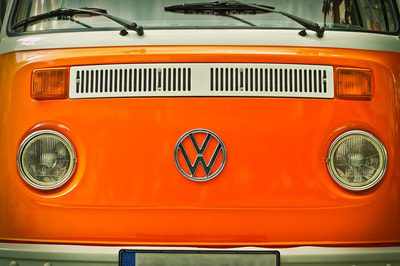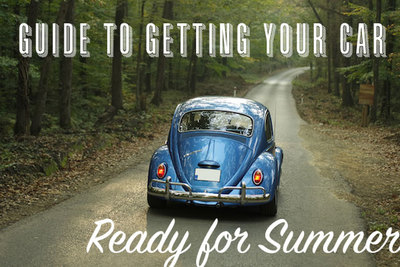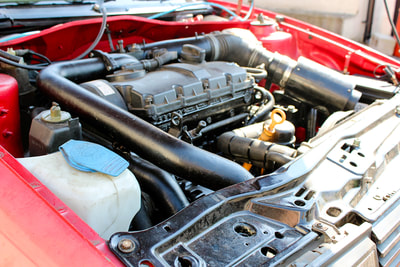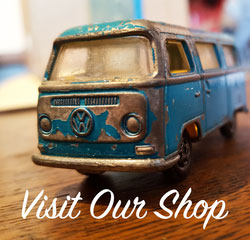|
In this new section of the blog we'll be answering some of the questions we get asked most often by our customers. Today I'll be weighing up the pros and cons of buying a classic car as a daily driver to help you decide whether you want to go the magical place of classic car ownership- or not. Can Be Cheaper to Tax/ Insure/ MOTTax If your classic car falls into the "Historical Vehicle" category, congratulations, it will be tax exempt. That means (at the time of writing) your car would have to have been registered before 1 January 1976 to qualify, but the government has recently announced a 40 year rolling exemption so, more great news, it will move every year from now on. We've never had any issues getting this classification for our vehicles- although I've heard stories of people struggling to prove their car is the age they claim, especially on imported and modified vehicles, so that's something to bear in mind. Insurance Look in any classic car magazine and you'll see plenty of full page adverts promising cheap insurance for classic car owners- but are classic cars cheaper to insure? Insurance companies can offer classic car policies at very reasonable prices- policies for our own classic cars have cost £200-£500 over the past few years which isn't bad for people in their twenties. However, this cheap price is usually because they're limited mileage policies so may not be suitable for a car that's being used regularly if you have a long commute. Annoyingly, if you're a young driver and you want to use your classic car as a daily driver it's not always straightforward. Insurers will probably charge more and will ask for photos of your car too if you want an agreed valuation. MOT Do classic cars need an MOT? Right now anything pre 1960 is MOT exempt but the government has new plans to make any vehicles over 40 years old exempt from the MOT test as well from 2018. Can Be More Expensive to Maintain/ RunFuel Costs Most classic cars get fewer miles to the gallon than modern ones so prepare to be constantly shelling out at the fuel station. Classic cars generally get around 20-30 miles per gallon compared to upwards of 50 miles per gallon on a modern car, depending on the engine. Of course an engine conversion would counter this issue- although you'd need to decide if you wanted to sacrifice originality for the sake of the savings you'd make on fuel and also think about the upfront costs of an engine conversion. Maintenance Classic cars need servicing more often. Air-cooled engines need servicing every 3000 miles whereas modern cars on long-life servicing can last for a whopping 20,000 miles in comparison. You should also think about the bodywork. As any classic car owner will tell you, the upkeep of car bodywork can cost far more than mechanical work and is harder to do on your drive at home. As soon as you buy a classic car you should be looking at rustproofing, waxoyling and undersealing it to protect it from the elements and stop it rotting, especially on a daily driver. Take a look at my blog post on preventing rust on your car for more details on this. Another downside about owning a classic car is that it might be harder or more expensive to find someone with the knowledge to look after your car if you don't want to work on it yourself or it develops a big fault and you need expert help (I wouldn't recommend taking it to a non-specialist garage in this situation unless they have specific, extensive experience working on your model of car). Easier to Work OnIf you have the time and inclination to learn, classic cars can be easier to work on because they have less advanced electrics, simpler engines (so often there's more room to work on them) and less external parts and wiring to work round. There's loads of resources available from books to classes, including my regular Car DIY tutorials in which I try to help people who are keen to work on their own cars (including classic ones!) So owning a classic car can be a good way to start advancing your knowledge of mechanics in general too. Less of the ComfortsHere are just some of the modern conveniences you'll be lucky to find in a classic car:
That being said, you can have after-market versions of most of these things fitted into your classic car if you really want- although this is another expense! And again will take away from the originality of the car. Fun to DriveI’ve been focusing a lot on the financial aspects of running a classic car but I haven’t yet mentioned the number one reason people want to own them- how awesome and fun they can be! Different and unique, you'll never lose a classic car in a car park and will be getting lots of compliments on your ride too. Less Safe/SecureOne last bad point- older classic cars come without central locking and alarms, making them easier to break into- so don't plan on leaving your treasures in there. Not to mention air bags and seat belts are considered luxuries in classic cars. Could Go Up in ValueAre classic cars a good investment? If you're reading an article about owning a classic car as a daily driver I'm assuming you're not an art-collecting oil baron looking to add to his collection- so how much money it's going to be worth in the future shouldn't be your main concern? Of course, modern cars depreciate in value as soon as you leave the dealership, so if your classic car is only going up in value with age that's always a nice thought. The big but here is that your classic car will definitely depreciate in value if you don't keep it regularly maintained. In my article Three things Mechanics Wish You Knew about you Car I explain some more about why car maintenance is so important. ConclusionLots of people dream about owning a classic car and looking back through this article I might have focused too much on the negative side of classic car ownership. But I'm a realist and I believe in honest and practical advice (see: No Nonsense Advice on Starting a Classic Car Side Biz). We've seen a few dreamers who buy a classic car for the first time and are a bit shocked by the reality of it, ourselves included. That said, classic cars have a lot going for them- as any owner will tell you- I'm just trying to provide balance here and not ignore the bad stuff. To summarise then: good points- you could potentially save money on tax and insurance, they're really fun to drive/own and you might even sell the car for a profit in a few years time. The bad points? You need to be prepared to put some effort into a classic car, more so than you would on a modern car (not necessarily a bad point if you love working on cars or are eager to learn) or be happy paying someone else to do that for you. Have You Got a Car Related question you want us to write about? |
watch our new youtube channelOur blog delivers brutally honest advice for the “rotbox” in your life with the aim of raising the standard of car projects everywhere.
Practical, direct, actionable ideas and zero bull. Read on. About
|
AboutWe're a dedicated, independent fabrication company based in rural North Yorkshire that specialises in light general fabrication work including CNC plasma cutting and CNC sheet metal bending.
|

